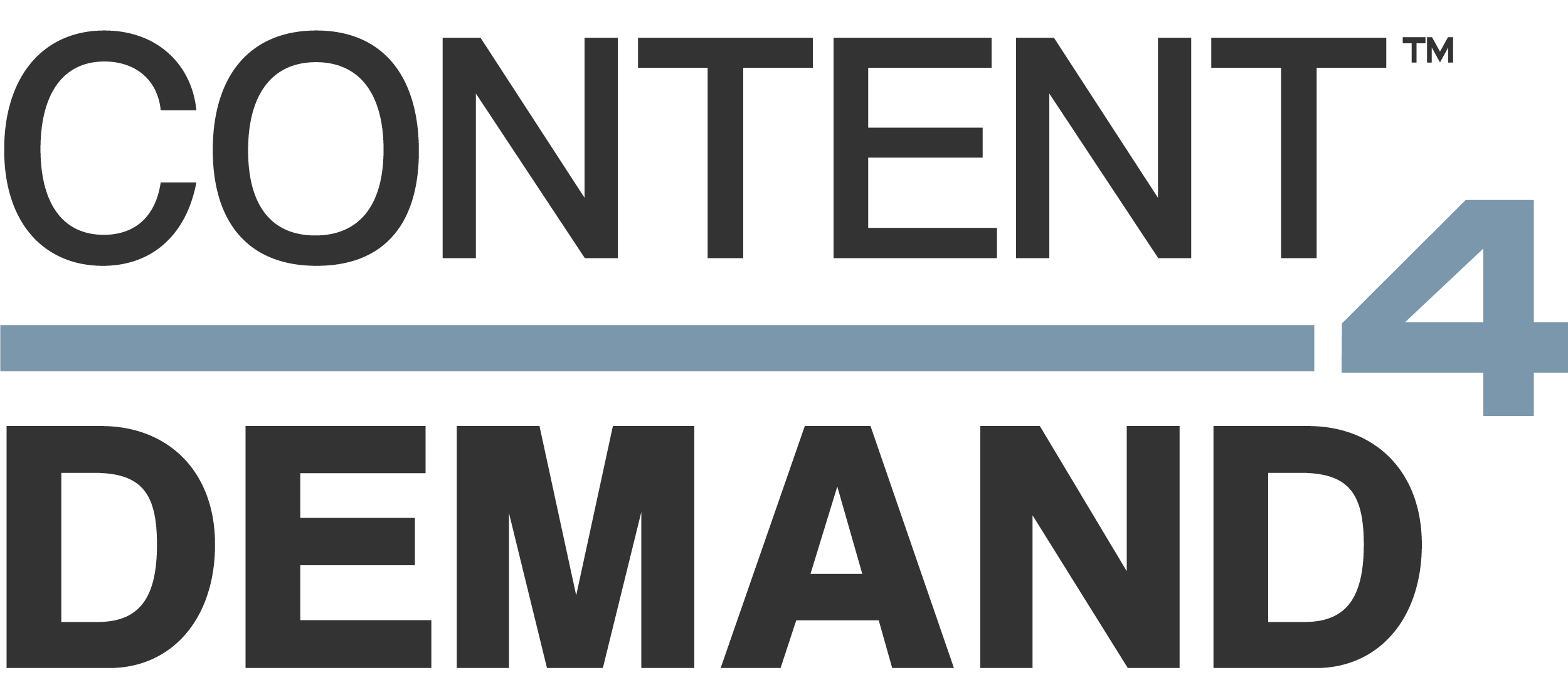At the recent B2BMX event in Scottsdale, my colleague Lori Culliton and I presented a workshop entitled, “Content Storytelling: Cut Through the Clutter with Inspiring Buyer Stage-Specific Content.” In a room full of seasoned marketing professionals from a broad range of industries, we tackled some of the biggest challenges we all face:
- Focusing on the audience needs and preferences
- Finding the right vehicles and channels for your messaging
- Using robust, multi-faceted assets (like research reports and influencer content) to anchor campaigns and stretch your marketing dollars.
We learned and shared so much that I’ve developed three follow-up articles designed to help those who were unable to attend the event.
First, let’s tackle the challenge of genuinely prioritizing an audience focus.
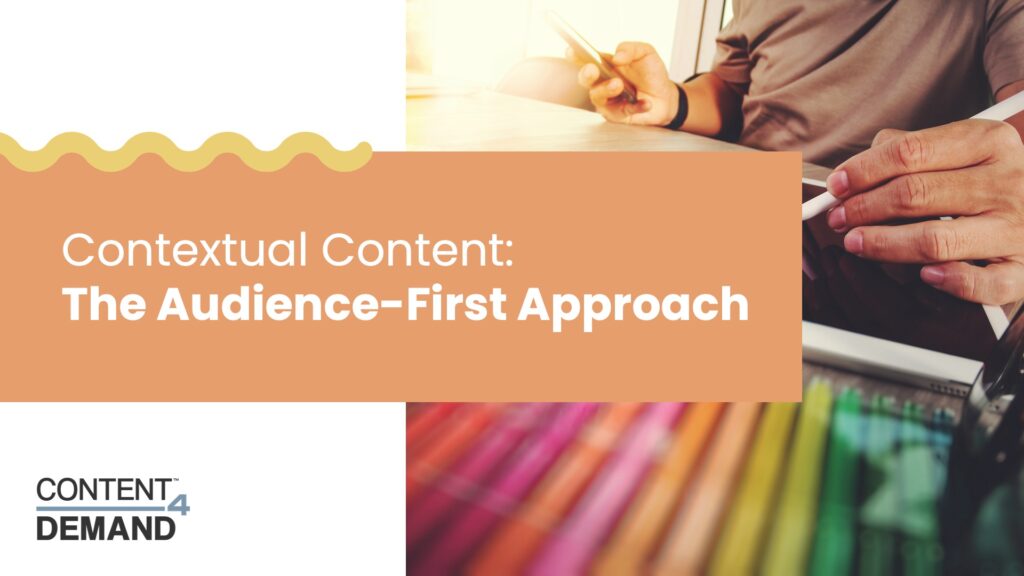
The struggle is real
It seems simple and intuitive, but it really isn’t. As marketers, we know that audience-focus is essential. When you want to persuade, knowing the perspective and preferences of the reader are fundamental to building effective messaging.
But it seems like stakeholders come out of the woodwork to advocate for pushing the product message into every asset and splashing it across every inch of the website. Suddenly, early-stage content starts feeling like a pitch deck. A battle then ensues. In the interest of keeping everyone on board, we often agree to brand and product language that we know should not be included, especially in early-stage assets.
All eyes on… the buyer
Let’s back up and discuss why this is a fight worth having.
Imagine you’re at a party. There are plenty of strangers mingling around. A person who looks nice approaches and immediately begins telling you about themselves. In fact, it feels like even when they are asking about you, they are just teeing up another opportunity to brag about how brilliant, useful, and different they are. Smash or pass?
The same thing is true in B2B marketing. How should you introduce yourself to prospects who don’t know that your industry – much less your business – even exists? If you have any doubts about this, consider your reaction to cold calls and car salesmen. Would it not be better to share some knowledge that they may find interesting and then ask them a bit about who they are? With a focus on them, you can learn their pain points and triggers. Sometimes they even sell themselves on the need for a change in the process.
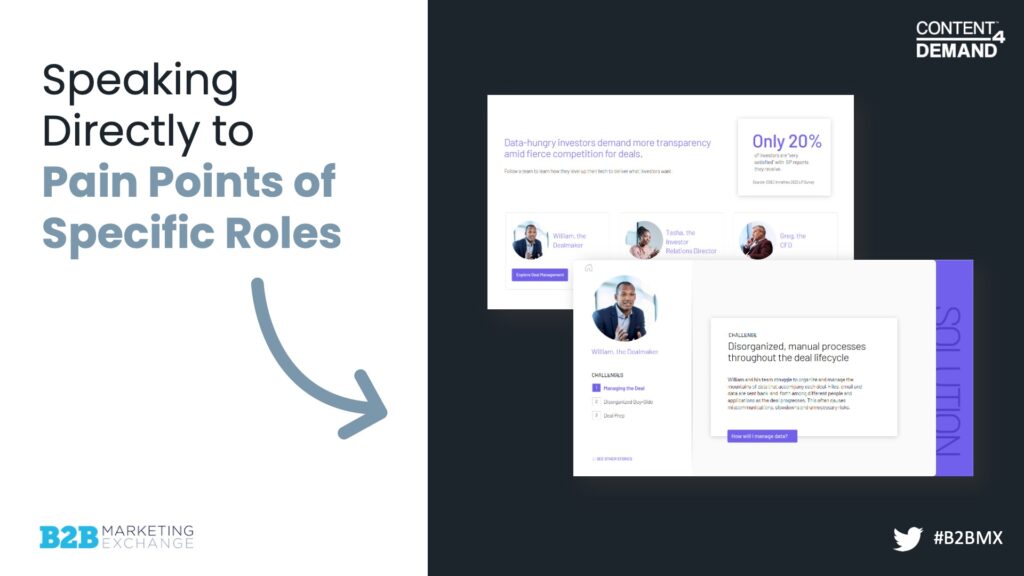
Fighting the good fight
Help your team understand that there is plenty of time for product messaging in late-stage content. When you begin by adding value to a prospect’s understanding of the business and then build out opportunities to explore further, you are both establishing your brand as a thought leader and showing that you will be a trusted partner before, during, and after the sale. A real partner is not self-serving. A partner wants what is best for you and is willing to forgo the short win in favor of the long-term relationship.
In practical terms, what does this mean?
Start with an asset like an influencer eBook, which gives you an opportunity to introduce big ideas that can help users think differently. You can have some of your company’s leaders contribute and interview partners and clients who can lend a variety of perspectives. (A bonus is that everyone featured in the eBook will want to share it on their social media channels, so you can get an exponential reach.)
This eBook will not be about your company or product. Not even a little. It is a contribution to the broader online discussion that bears your branding. From this asset, you can pull blog posts, snappy quotes for social media, data for an infographic, etc. so that you are getting plenty of mileage out of the content. If you do it right, you can build out an entire campaign from this one starting point.
Avoiding the mushy middle
Next comes the tricky middle stage of the buyer’s journey. Let’s go back to our party for some insights.
The person you are chatting with now did not lead with ego. In fact, you discovered right away that you have a common love of classic hip hop. Now they are sharing the names of some of the venues that play that music, offering tips on finding Mod Def’s The Ecstatic (Seriously though. Not on Spotify or Apple Music?), and having a real exchange of ideas. You can tell that they are a fellow music lover, maybe even an expert, but they have not been talking about themselves. Are you intrigued? Engaged? Maybe even dying to know more about them?
Try to do the same thing with your middle stage content. What could you create that would signal to a reader that you know your stuff and are investing in helping them succeed? Some of the assets I like here are pieces that aid planning, like Q&As and checklists. You are attempting to broaden their understanding and in doing that you are building credibility and establishing rapport.
But beware. These prospects are still not ready for the big close. You can mention that you are legendary record producer Rick Rubin, which will help them see the value of your perspective, but don’t start rattling off your bona fides if you want them to keep listening.
A strong finish
Finally, the party is ending. You want to be sure you can continue the conversation with this intriguing person. As you exchange numbers, it is natural and not off-putting for them to tell you a bit more about themselves and why you should agree to coffee next week.
Now, don’t take this to mean that late-stage content can be a litany of product features. You are still trying to persuade. That’s why case studies, which are essentially third-party testimonials – are so powerful here. You can also build use cases, buyers guides, and other assets that will facilitate implementation. Since there will be some readers who want to get in the weeds and some who want a meta-perspective, consider using interactive pieces here.
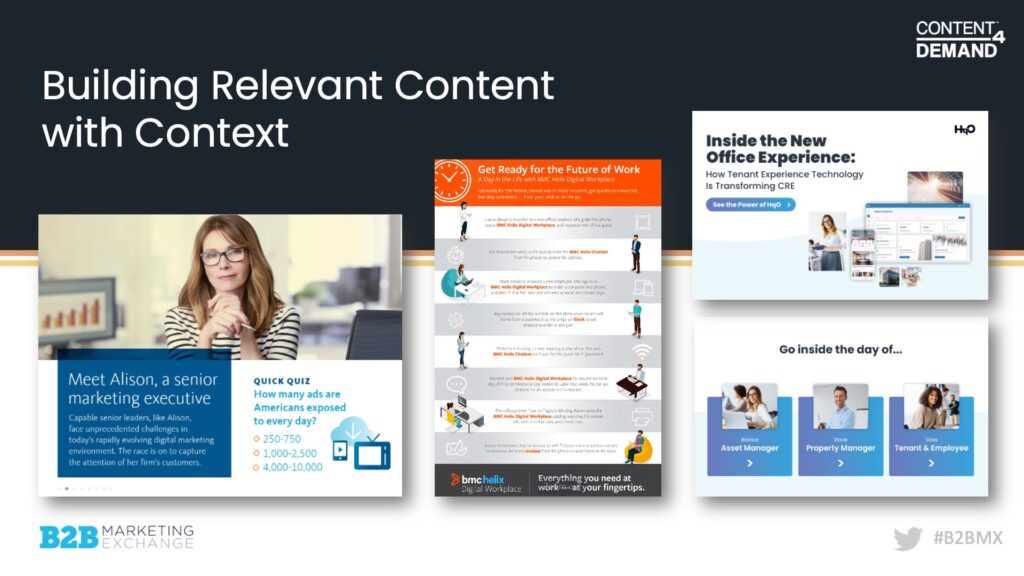
Digits or bust
Whenever you are wondering why a piece of content isn’t performing as well as you’d like, read it through the party lens. Would you make an excuse to leave or put your number in their phone? Since marketing is really just about connecting with people, never forget the importance of the way you make a prospect feel – not just what they think. There are a dozen people vying for their attention at this soiree. If you want their number, you’ve got to show them you deserve it.
